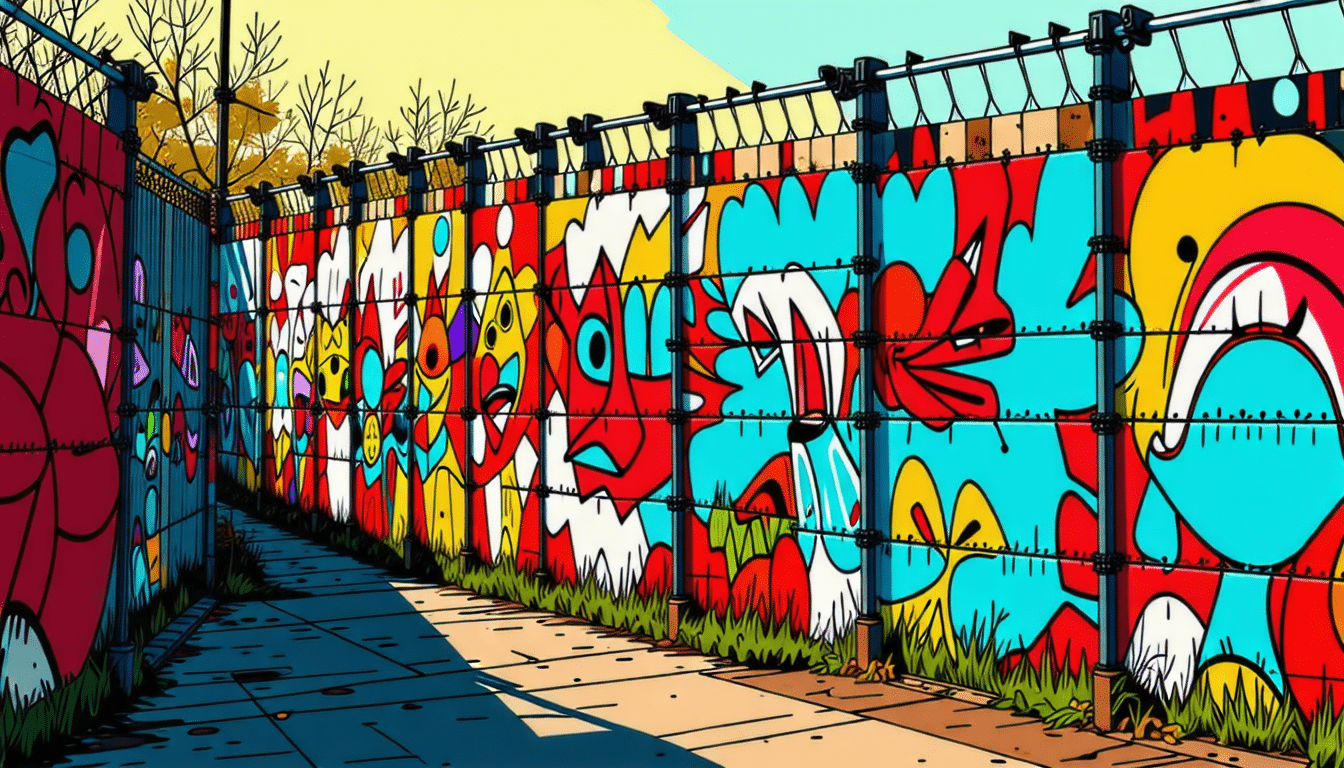Discover the poignant echoes of the Berlin Wall, a symbol full of emotion and history that has shaped not only Germany, but the entire world. Through unique testimonies, dive into the heart of a captivating story that recalls the dark and bright hours of our common history. Don’t miss this moving exploration of one of the most controversial and evocative constructions of the 20th century.
The Berlin Wall: unique testimony to world history
The erection of the Berlin Wall on the night of August 12 to 13, 1961 represented much more than a simple physical barrier. It was a poignant symbol of the ideological and political division of the world during the Cold War. Between the communist East and the capitalist West, the Wall embodied a gaping divide at the heart of Europe, making Berlin the scene of large-scale confrontations and exchanges.
The construction of the wall: a response to a migration crisis
Faced with a massive exodus of the population from East Germany to West Germany, the East German regime, under pressure from the USSR, chose a radical solution: the construction of a wall . Within hours, kilometers of barbed wire were unrolled, separating families and friends, and transforming ordinary streets into lawless zones patrolled by armed guards.
Life in the shadow of the Wall
The presence of the Wall radically transformed the lives of Berliners. Many families have been separated, careers destroyed and lives regularly put in danger during desperate attempts to cross. Daily life was punctuated by constant surveillance, patrols and an omnipresent tension that you could almost touch with your finger.
Art as a form of resistance
Despite repression and surveillance, the Berlin Wall became a huge canvas for artists opposed to division. The famous East Side Gallery, a portion of the Wall preserved and transformed into an open-air gallery, displays famous works such as the “Kiss of Death” between Brezhnev and Honecker. These artistic expressions have become icons of resistance and political criticism.
The fall of the Wall and its repercussions
November 9, 1989 is etched in the collective memory as the day the Wall fell. That night, pressured by months of civil protests and political changes in Eastern Europe, GDR leaders announced that their citizens could visit the West. The immense joy of family reunions and the celebratory destruction of the Wall symbolized the end of an era and the beginning of a new era for Germany and the world.
Why remember the Berlin Wall?
The Berlin Wall remains today a powerful memory of the capacity of ideologies to divide and of the strength of people to overcome these divisions. The surviving segments, along with memorials and museums dedicated to its history, serve as permanent reminders of the vigilance necessary to preserve freedoms and unity. Visiting these sites or even learning more about this chapter of human history reminds us of the importance of fighting divisions and seeking to understand and respect our differences.
In conclusion, the Berlin Wall teaches us that no physical or ideological barrier can stifle the intrinsic desire for freedom and social justice. The past, however dark it may be, is a guide to a future where such divisions would no longer find place.









